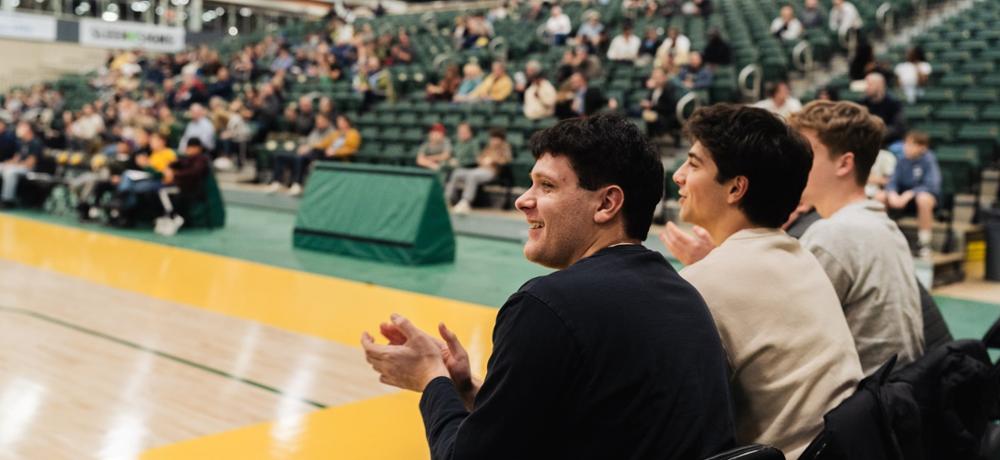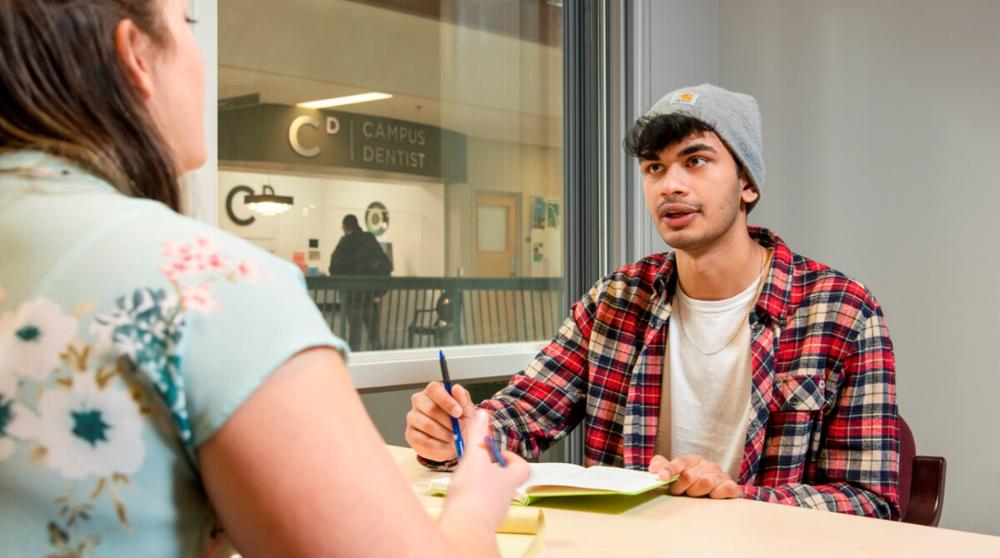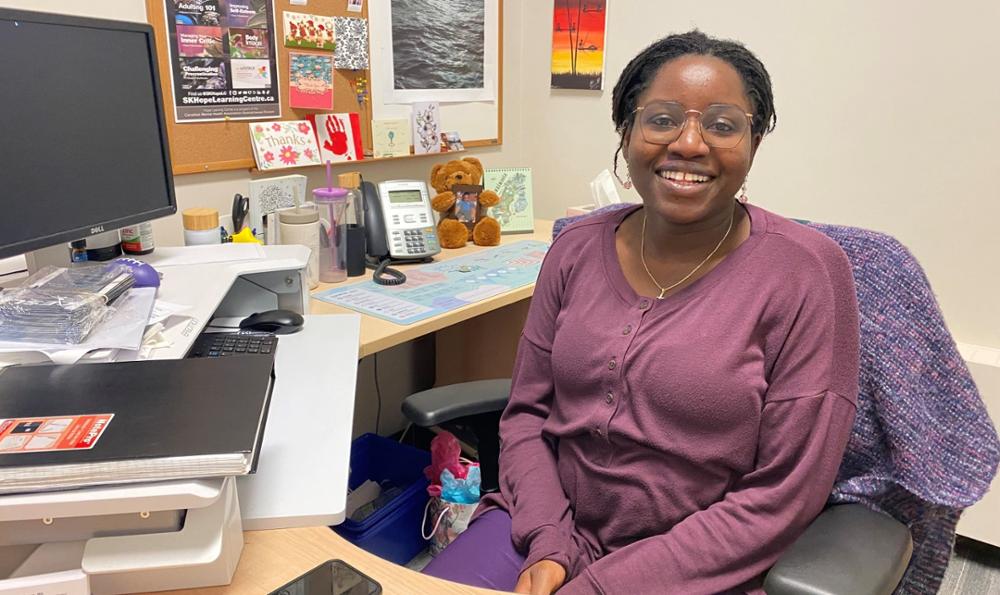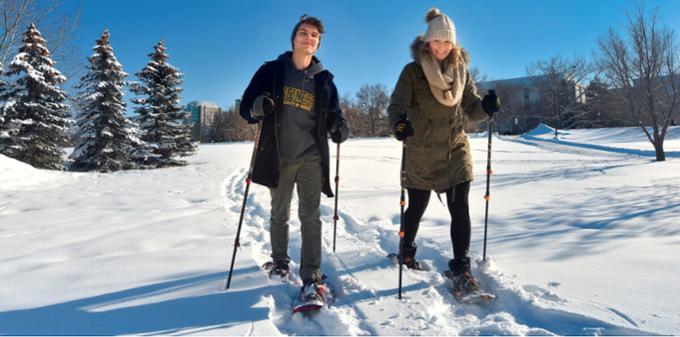Both new and experienced students can find the pace and demands of university challenging. The amount of juggling can be overwhelming with multiple deadlines, hours of reading and studying, personal commitments, and sometimes a job.
“During my first semester it seemed like everything moved so quickly and I felt tangled up with trying to manage my classes, jobs, and sports. This semester my goal is to stick to my study schedule so I’m better prepared for midterms and finals. Those are definitely the most stressful times,” says Emma Young, first- year Education student.
Tomi Ogeye, Experiential Learning Co-ordinator and Sessional Instructor at the U of R, has a passion for helping students like Emma build healthy habits such as sticking to their study schedules. She also worked in the Student Success Centre advising plenty of students.
We understand the ups and downs of a busy schedule and life. I encourage students to seek out the resources available to them right here on campus, including consultations through the Centre for Experiential and Service Learning and Student Success Centre. – Tomi Ogeye, Experiential Learning Coordinator
“Everyone has heard of SMART goals but I think the better and simpler way to look at it, is building habits. A little goes a long way when it comes to making habits stick and changing your life for the better,” offers Ogeye. She says goals are fine, but the real focus should be on the small concrete actions that lead to the realization of goals. The most common habits she helps students develop are related to managing time effectively, improving mental health, making friends, and getting better grades. She has simple and straightforward advice to share.
Make friends and expand your network
Ogeye says signing up to volunteer through the U of R Volunteer Center is one of the best ways to connect with other students and the community. The process includes signing up on UR Path, attending a mandatory volunteer workshop, then choosing the organizations and locations you are interested in and getting connected to opportunities. She encourages students to set a specific goal such as volunteering twice per month. Not only do you meet new people, you gain experience and skills, and help make a positive impact.

Similar opportunities to network include signing up for the Ambassador Program or UR Linked. In the Ambassador Program, you attend training then share your enthusiasm and energy with new or prospective students at events such as Orientation, Open Houses, and campus tours. UR Linked is a mentorship program that connects students with alumni, staff, and working professionals from the community for career-inspiring coffees.
Fun and friends can also be found at a Cougars or Rams sporting event and pre-game activities. Be sure to check out the schedule at the beginning of every month and put the events in your calendar. Tickets are free with your student ID. Every faculty also has a student association and regularly holds meetings and events. Choose to attend one event a month or one per semester. “In essence, it is important to work on networking skills because they help you at every stage of life and are proven to help you feel healthier and happier,” says Ogeye.
Mind your health
Ogeye compares our bodies and minds to a well-running car. “You have to keep gas in the tank and do regular maintenance and care to ensure the engine stays problem-free and runs well.” She often hears from students that they want to feel less anxious. Her first piece of advice is to block off time in your calendar for self-care. Through her undergrad and Master’s degrees, Ogeye blocked off every Sunday as her self-care day and wrote in her journal, attended church, made time for family and friends, and played basketball. Not everyone might feel a whole day is an option, but three hours twice a week can go a long way. The first step is to add self-care to your calendar as a recurring event and stick to it.

Changing your mindset by making peace with the unknown is another tool for reducing anxiety. “Students share they aren’t sure if they’re taking the right classes or are worried that they won’t find a job after graduation. I encourage them to list different possible outcomes or paths so that they don’t get stuck in the mindset of only two outcomes: success or failure.” At a minimum, she suggests students list three different options or outcomes – ideal, second best, and third best.
Students can access campus and community resources focused on well-being through the Student Wellness Centre as well as the Online Therapy Unit that offers a short or long courses designed specifically for post-secondary students. Uniwellbeing, the longer course that connects each student with an online therapist as part of the program, aims to provide free, simple, and effective techniques to help reduce depressive or anxious thoughts and behaviours.
Get the most out of class
To be a better student, Ogeye says prioritizing and maximizing class time is the key. She says many students come to her and say they want to get better grades and improve their average. The advice she gives them is to make it a habit to set aside time before and after class to review the assigned readings and notes. “30 minutes can go a long way. You feel prepared going into class because the topic is fresh while reviewing after class helps you retain the information the professor just shared. If there is anything you don’t understand, you can make a note and ask the professor next class.”

To find out what else you can do to improve your study habits, make an appointment for a learning skills consultation with the Student Success Centre. The appointments are confidential and can be held one-on-one in-person, via Zoom, or by phone. Research shows that students benefit both academically and personally when they take advantage of campus resources that help them develop strategies and skills to handle the demands of student life.
Manage your time effectively
The most common goal students request support on is better time management. With one semester under her belt, first-year student Young learned very quickly she could use some advice for navigating a jam-packed second semester. “I know I need to stay more organized with due dates to ensure I’m prepared, instead of doing everything last minute.” Ogeye says having a plan in place and reviewing it every day will make a big difference. She suggests putting all of your due dates in your phone calendar as soon as you know them and if possible, write them in a physical calendar where they are easy to scan. At a minimum, the Student Success Centre has a printable weekly calendar that includes daily “to dos,” as well as a task list for the week, and a box that highlights specific deadlines. You can also attend one of the Time Management workshops held by the Student Success Centre.

The Archer Library is also a helpful resource for connecting students to articles, videos, and books on subjects related to building healthy habits, well-being, and time management. They also have a partnership with the City of Regina Public Library system so students can pick up and return books from the city collection right on campus.
Get free one-on-one advice for how to effectively manage your time and get better grades from a Learning Skills Consultant in-person, via Zoom, or on the phone. Learn more.
What habits will you focus on building in 2024 and what tools and resources will you consult for support?
“We understand the ups and downs of a busy schedule and life,” says Ogeye. “I encourage students to seek out the resources available to them right here on campus, including consultations through the Centre for Experiential and Service Learning and Student Success Centre, to help with building habits around health and well-being. Just one new healthy habit can make a huge difference.”
Banner photo credit: U of R Photography
About the University of Regina
Set in the heart of the Canadian prairies we are a comprehensive, mid-sized university where the opportunities are as limitless as the horizon. Our campuses are on Treaty 4 and 6 - the territories of the nêhiyawak, Anihšināpēk, Dakota, Lakota, and Nakoda peoples, and the homeland of the Michif/Métis nation. It is our responsibility to strengthen relationships with Indigenous communities to build a more inclusive future for all. Our three federated colleges, 10 faculties, 25 academic departments, and 18 research centres foster innovative research with practical and theoretical applications. We are committed to cultivating the potential of our 16,000 students and supporting their health and well-being. We take learning beyond the classroom through work and volunteer experiences to develop career-ready graduates.
Let’s go far, together.
